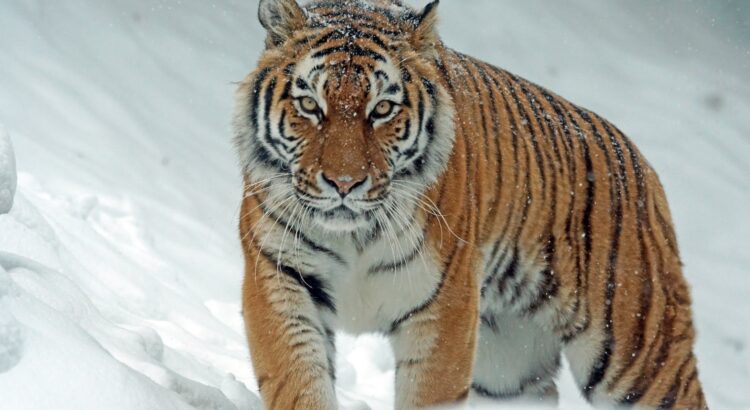I wrote the following column in January of 2015. I pulled it out again today because this week Russian opposition leader Alexei Navalny was tracked by Russian agents and poisoned with the military-grade nerve agent Novichok. Navalny now lies in a Berlin, Germany hospital in a medically-induced coma while he undergoes treatment.
NATO Secretary-General Jens Stoltenberg says there’s no doubt that Russia was behind the poisoning: “Time and again, we have seen opposition leaders and critics of the Russian regime attacked, and their lives threatened. Some have even been killed. So this is not just an attack on an individual, but on fundamental democratic rights.”
What was Trump’s response? “We don’t have any proof yet, but I will take a look…It is interesting that everybody’s always mentioning Russia…but I think probably China at this point is a nation that you should be talking about much more so than Russia.”
This is patently absurd. The Soviet Union and Russia developed Novichok between 1971-1993, and it has been used to poison other opponents of the Russian regime in recent years. Our president, once again, is riding with dictators and despots. Why won’t he stand up to Putin? Is it because of his business dealings in and with Russia? Does Putin know something about Trump’s own malfeasance? Does he simply admire the autocrat?
It has been over a month and a half since our own intelligence agencies reported to Trump that Russia was paying bounties to Taliban-linked militants for every American service member killed. Not a peep from the president. Bounties on the heads of our own soldiers, and the Commander in Chief says nothing?
It’s getting harder and harder for GOP members of Congress to ignore the truth of his incompetence and the danger of this incompetence. And yet, they still manage to find the wiggle room. November is coming, folks. Don’t get mad; get organized!
Here’s what I wrote over five years ago about Putin and Navalny:
President Vladimir Putin clearly relished the photo op: he released three Siberian tigers into the wild in May after they’d been nursed back to health. Putin provides the Russian press with ample opportunities to snap shots of him with various wild beasts—or while horseback riding bare-chested—and he thinks carefully about the crafted message. But he still sometimes misses the mark—like the time he donned a puffy jumpsuit and goofy goggles and flew a motorized hang glider in an attempt to aid endangered storks in their migration. They hadn’t gotten the memo and were not compliant. The much-publicized feline feat similarly did not go well. The tigers ran to China.
The cats innately sensed what those living in the Russian taiga know; it is almost impossible to eek out a living there. It’s reputation and formidable conditions render it another character in John Vaillant’s award-winning, gripping narrative, “The Tiger: A True Story of Vengeance and Survival.” Equal parts foreboding, pitiless, and magnificent, it is astonishingly difficult for Russians to survive in Russia’s Far East. And it’s not just the climate, economic conditions, and the presence of wily tigers that make it so challenging; it’s also because of the deep-seated absurdity that shapes the Russian experience.
Maddening state-planned vagaries control Russian lives from afar and offer a vexing backdrop for Vaillant’s tale of the 1996 hunt for a massive Amur tiger (Siberian tiger) after it develops a rapacious taste for human flesh. His story is so unsettling and his account so stark, that my woodstove did nothing to calm my goosebumps while devouring the tale. But the book is also an unlikely love story. The hunters were part of “Inspection Tiger” an anti-poaching brigade formed to stabilize the decimated tiger population in Russia in the face of extensive illegal trafficking of tiger carcasses to China.
Despite the chronic and crushing absurdity of life, or because of it, humor survives even in the bleakest of spaces. Vaillant weaves Russian jokes throughout his text: Q: What is chaos? A: We do not comment on economic policy. Or Q: Why is our government in no hurry to put men on the moon? A: What if they refuse to return? According to Vaillant, Russian historian Roy Medvedev uncovered that Stalin had imprisoned about 200,000 people for merely telling political jokes.
Several days before I cracked open “The Tiger”, President Putin reached out his own considerable claws and, through one of his many judicial pawns, handed down a wholly unexpected and equally guile-filled sentence to political prisoner Alexei Navalny. Navalny—arrested on trumped up fraud charges to neutralize his political influence—was found guilty as charged but was given a suspended sentence. It was Navalny’s brother, Oleg, who was sentenced to 3 ½ years in prison. The father of two young children—who has never been part of the opposition movement—will serve as a potent warning to those who would protest in the streets: Stalin’s tactics are still very much a part of Putin’s arsenal.
Independent Moscow-based political analyst Masha Lipman told the Washington Post that the Kremlin’s message was unambiguous: “All of you guys are at our mercy.” Alexei Navalny roared after the verdict, “Aren’t you ashamed of what you’re doing?” It’s clear that conscience is not part of the state-controlled judicial echo chamber.
With declining demand for Russian oil and gas, the ruble in freefall, and Western nations implementing more economic sanctions in retaliation for Putin’s meddling in Ukraine, it’s attractive to hope the Kremlin will finally feel chastened enough to moderate its ambitions. Don’t bet on it.
Wole Soyinka, Nigerian playwright and winner of the 1986 Nobel Prize for Literature explains: “A tiger does not shout its tigritude—it acts.”
